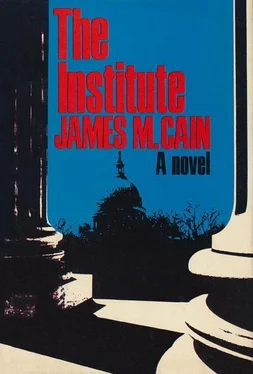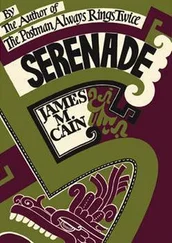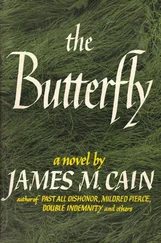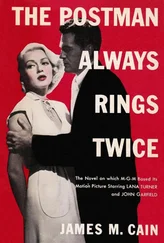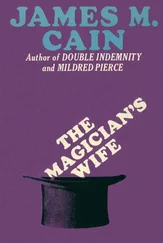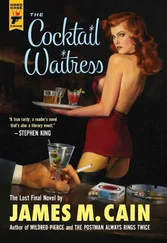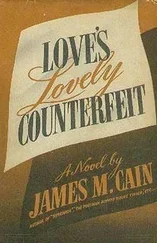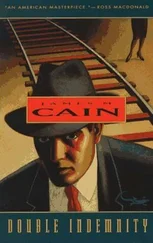“I demand an apowlogy from you.”
“I apologize.”
“What has been said is not so easily unsaid.”
“It’s the insidious way I work.”
“Then you still mean that I am ‘slippery’?”
“I still mean that you were skinned — by Bagastex, its investors, and all the investors’ friends. I still mean that you are broke and had better make a deal before the government takes you to the cleaners. I still mean enough cash to bail you out — of the building, on a three-for-one stock deal that will give you something to fall back on, and your retirement as president of Tombigvannah.”
“It is that condition, sir, which I regowd as an insult.”
“A compliment, you should call it. In my company, I’m the big bull elephant. You may not see the tusks—”
“I feel them, sir, in my ribs.”
“And in your company, you’re the bull. But there’s no room for two big bulls in an elephant herd. One of us has to give ground. So—”
He didn’t finish. Flinging his hat and cane on the typewriter table and slumping into the secretary’s chair, the colonel collapsed in tears, dropping his head on his chest and sobbing uncontrollably.
Downing turned to O’Connor with a gesture that meant things were settled. At first O’Connor looked surprised, but then he nodded. Mr. Garrett put his arm around the colonel and said to Sam Dent: “Get it on paper.”
“Mr. Garrett,” sobbed the colonel, “I truly thank you.”
“My privilege, sir; I assure you.”
The two of them followed Downing and Sam into Downing’s office and the door closed behind them.
The thing went on for an hour, with Downing at last popping out, a pencil between his teeth, to open the typewriter desk, put in paper with carbons, and begin pecking away, while Mr. Garrett and Sam Dent took turns popping out, whispering in Downing’s ear, and laying yellow legal pad worksheets beside him. Pretty soon Downing took the stuff he had typed back to his office, then came back out and closed the desk.
“Christ, what a night!” he said and started into his office again. But at that moment the outer door opened, and Hortense was standing there in a dark dress and green coat. Everyone seemed to know who she was and jumped up respectfully. They seemed almost excited. She saw me and waved a friendly, if baffled, greeting. Downing did it big, introducing himself and telling her: “Mr. Garrett’s in my office, Mrs. Garrett. He asked you to come down so you could look at a building he expects to acquire.”
“Oh, that!”
“He’s right in there.”
But before Downing could escort her in, the door opened and Mr. Garrett, Dent, and the colonel came out. Each of them had a piece of typewritten paper and they all acted friendly. When Mr. Garrett saw Hortense he kissed her and said how pretty she looked, which caused twinges to go through me. He let her say hello to Sam and then presented the colonel whose finest hour it now turned out to be. He bent over, kissed her hand, and said: “Mrs. Garrett, the honor, the privilege, the thrill I feel at last, to meet a lady I have heard about, every word of it praise, completely overwhelms me.”
Hortense dropped a curtsey, crossing her hands on her heart and bowing low. “Colonel Lucas,” she said, “the honor is mine. I’ll cherish its memory always.”
She straightened up, and Mr. Garrett gave it a hand, which I wished he hadn’t done; it made her curtsey seem phoney. He said: “Hortense, I thought before things are made final tomorrow, you would like to look at the building I’ve bought, the one Dr. Palmer picked for your institute.”
“Tonight? Just like that?”
“Well, why not?”
“It’s an odd time to be taking a look, but—”
“It’s only nine o’clock.”
“Then let’s get it over with. Who are these gentlemen?”
He introduced them, and I could see her, out of force of habit, memorizing the names. Then we all went out into the hall, piled into an elevator, and went downstairs. We had to take three cabs to the building. When Hortense, Mr. Garrett, and I arrived, O’Connor was there ahead of us, waiting with the watchman and his flashlight to show us through. But Mr. Garrett had the cab stop across the street. When he pointed to the building, Hortense caught her breath. “It’s beautiful, just beautiful,” she said reverently. And it certainly was. By moonlight, it showed up gray and ghostly, its proportions even more striking than they had been by day.
We got out of the cab and crossed the street, and O’Connor took us through it. We used the one elevator that was in service. O’Connor took us upstairs and down again, finally showing us the “stockbrokers’ board room,” as he called it, across from the elevators downstairs. But Hortense corrected him.
“Mr. O’Connor,” she said, “it may have been designed for eminent stockholders, but now it has become the reception room of the Hortense Garrett Biographical Institute, and for that purpose, is perfection itself. Do you agree, Dr. Palmer?”
“I can’t imagine anything better.”
And I couldn’t. It was large, a bit higher than most rooms and wainscotted in some kind of wood. It was dignified in a quiet, high-toned way.
A half-hour later we were in the Black Tahiti Restaurant just down the street. We all ordered margaritas and some sort of Polynesian food which I don’t remember the name of, but Hortense was the only one who had anything to eat. When the drinks came, Garrett tasted the salt on his glass, raised it, and said: “To the Hortense Garrett Institute.” When we had all taken a sip, he added: “Once more Dr. Palmer reaches out and grabs the brass ring from nowhere.”
“Dr. Palmer,” I said, “did nothing of the sort. He just passed on a tip that paid off — as we think.”
“I imagine you saw, though, after meeting the colonel, Lloyd, why I had to be sure you weren’t being used?”
“Was he using you is the question,” Sam Dent said.
I should have been pleased with myself, but I wasn’t. We were in a booth. I don’t know whether the Garretts being on one side of the table, with Dent and me on the other, upset me or what; but for some reason I felt gloomy in spite of the building and the giant steps we were taking toward getting the Institute started. But Sam was truly depressed.
“The point,” he said, “is not the brass ring that was grabbed or who was using whom, but what we do with the worst turkey I ever heard of, now that we seem to have it. Mr. Garrett, I hate to be a killjoy, but if Bagastex broke Colonel Lucas, think what it will do to you.”
“Make me rich is all.”
“Rich er ,” Hortense said. “He’s already filthy rich — except that the Hortense Garrett Institute will, to some extent, change that situation.”
“How can stuff you can’t sell make you rich?” Sam asked.
“By my changing the angle of promotion.”
“Lucas gave it all the promotion a product could ask for. That’s what landed him behind the eight ball.”
“I said I would change the angle.”
“Am I supposed to ask how?”
“By ninety degrees, exactly.”
“What is this, some kind of joke?”
“Not at all, Sam. As you’ve observed a great many times, Bagastex, horizontal, was a flop, a turkey, a bust. It had to be made too thick. Kids tripped on it. It took a power tool to cut it. And it created a storage problem in places that handled it. But vertical — as house siding — it’s perfect. That’s where the ninety degrees come in. I had some of the stuff sent to the lab up in Wilmington and told them to work on it, see what it was good for, if anything. Don’t forget, Sam, I often know a thing from a thing, and with this crazy thing, the point of it is: it’s cheap. So they heated it, hoping it would soften and they could press a matrix into it and mold it to look like bricks or stone or something. But all it did was turn white. No matter what color it had been from the dye that had been put in it, when it was heated, it turned white. Pete Holton there in the lab kept thinking there had to be some way of making use of that characteristic. And all of a sudden, he had it — or thought he had. He loaded some oil bidons on a truck, drove down to Georgia, and propositioned the Bagastex foreman for a few gallons to take back home so he could fill up that hole in his cellar without calling a goddam plumber who would, in turn, have to apply for a permit which he wasn’t at all sure he could get because it involved his sewer connection. So, for a hundred bucks, the foreman filled the bidons with liquid Bagastex, the mush they rolled into sheets and tried to sell as linoleum. It just so happened that this batch of stuff was red, so when Pete got back, he poured a bidon of it into the tray he’d used for heating, and as it was starting to set, he pressed a matrix into it, one he’d made from a brick wall, a hammered mold of wet cardboard that he had let dry. The Bagastex took the impression and looked exactly like brick except that the joints were red, just like the rest. But a hot wire grid, when he pressed it down on them, burned them white; they looked like the plaster between bricks. Then he built a small house of the stuff on the hill there by the lab. He’s been swamped with inquiries about it. Curiously, it uncorked one advantage we hadn’t anticipated, that no metal siding has. It’s slightly porous, so ivy clings to it, which it won’t do to steel, aluminum, or copper.”
Читать дальше
